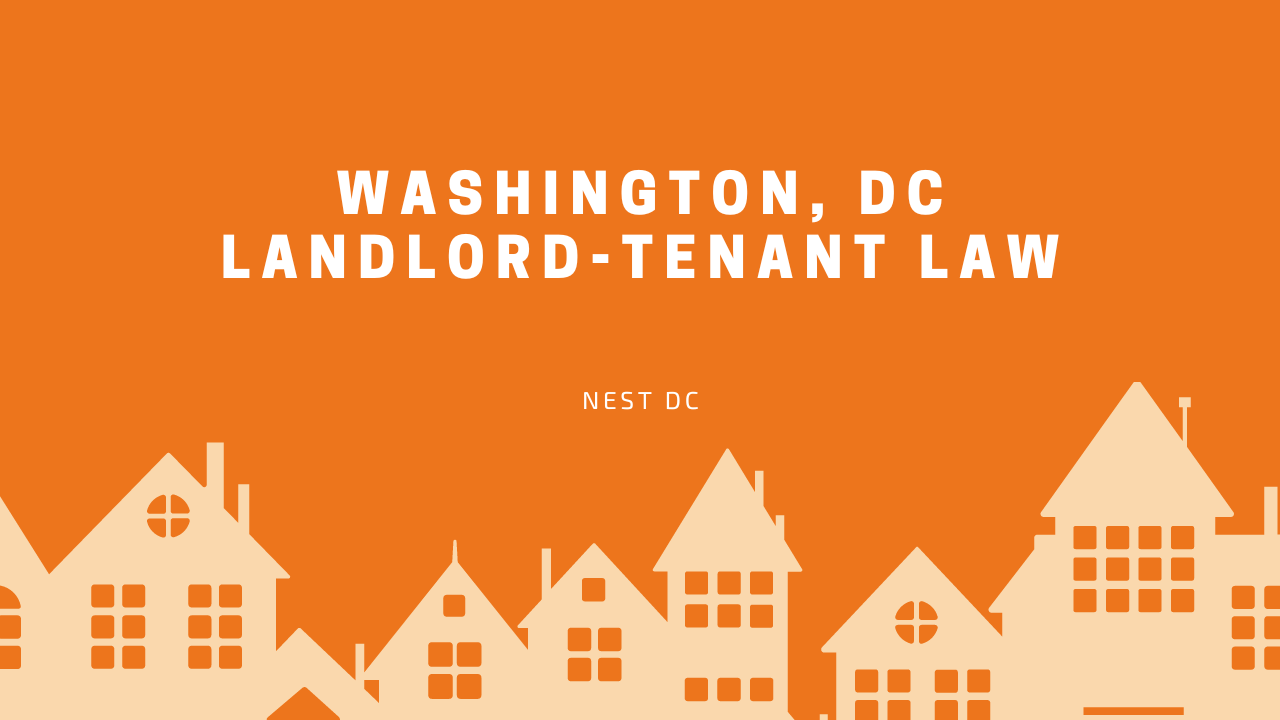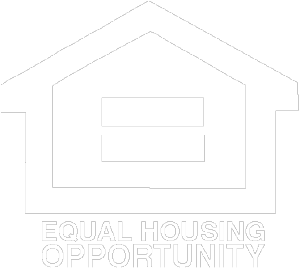DC Rental Laws - An Overview of Landlord Tenant Rights in Washington, DC
Nest DC

Relationships between housing providers and tenants can be complicated, and that's why every state has its own set of landlord-tenant laws in place to protect both parties. In this article, we will discuss the landlord-tenant laws in Washington, D.C.
As a landlord, it's in your best interest to be familiar with these laws during the tenancy and include them in your lease, to avoid conflict with tenants in small claims court.
Required Landlord Disclosures in Washington D.C
Nonrefundable Fees
In Washington, D.C, laws state housing providers must disclose any nonrefundable payment fees they charge their tenants before signing the lease agreements. These fees may include applications, pet, move-in, or any other fees the landlord may require.
Security Deposit
Housing providers must also disclose the amount of security deposit they require from tenants and any conditions under which the deposit may be withheld. Washington DC laws limits the amount of security deposit that landlords can collect from their tenant, and landlords must provide a written receipt of the security deposit.
Rights of Domestic Violence Victims
Housing providers in Washington, D.C, must give notice to tenants about their rights as domestic violence victims. This includes the right to
break a lease early without penalty if they are a victim of domestic violence and the right to request additional security measures to ensure their safety.
Truth in Renting Act
The Truth in Renting Act is a Washington D.C law that requires housing providers to provide a tenant with a copy of the rental agreement and any rules and regulations that apply to the rental. This disclosure is necessary because it helps a tenant understand their rights and responsibilities as renters.
Owner or Agent Identity
Laws state housing providers must disclose their identity or the identity of their authorized agent in any lease agreement.

This disclosure ensures that a tenant knows who they are renting from and who to contact in case of any issues or disputes.
Move-in Checklist
Finally, under the local landlord-tenant law, housing providers must provide a tenant with a move-in checklist that describes the condition of the rental unit at the time of move-in. This checklist helps both housing providers and tenants document any existing damage or issues with the unit, which can prevent disputes at the end of the lease term.
Washington, DC Tenant Rights and Responsibilities
A tenant in Washington, D.C, have certain rights protected by laws. These include the right to remain in residence until the proper procedure is taken to remove them, the right to have repairs made within a reasonable amount of time, the right to receive notice of changes in rental agreement terms, the right to privacy, peace, and quiet, and the right to a safe and sanitary home.
Along with these laws and rights, a tenant also has certain responsibilities that they must fulfill. These include providing the landlord with notice before vacating the unit, abiding by the rental agreement terms, keeping noise levels down, informing the landlord of needed repairs, and paying rent on time.
Washington, D.C Landlord Rights and Responsibilities
Housing providers in Washington, D.C, also have certain rights protected by law. These include the right to evict a tenant, receive repair requests promptly, be notified when the tenant leaves town for an extended time, and increase the rent under the rent control laws, with proper notice.

Along with these rights, there are also certain responsibilities under these laws for property owners that must be fulfilled.
These include following the legal eviction process set out in Washington D.C, abiding by the rental agreement, and giving renters 24-hour written notice before entering their home (except during emergencies), make requested repairs promptly, and comply with all health and building codes that apply to the rental property.
An Overview of the Landlord-Tenant Laws in Washington, D.C
Condition, Maintenance, and Repairs
Under laws, both housing providers and tenants in Washington, D.C, are required to maintain the unit in a habitable condition and make necessary repairs promptly.
Tenants can expect their rental units to be safe, clean, and free from any hazards since housing providers will keep up with
maintenance. While landlords can expect the tenant to maintain the rental by cleaning and taking out the trash.
Required Landlord Disclosures in Washington, D.C,
Landlords in Washington, D.C, must disclose certain information to their tenant, such as the amount of the security deposit and any nonrefundable fees, the identity of the landlord or property manager, and a move-in checklist.
Security Deposits
Under Washington D.C law, housing providers can only charge up to one month's rent as a security deposit.

The landlord must provide the tenant with a receipt and a written statement detailing the conditions for the return of the security deposit. The landlord must also pay interest on the deposit every year.
Rent Control
Washington D.C has a rent control law that limits how much housing providers can increase rent each year. The increase is based on the percentage change in the Consumer Price Index. As a landlord, you must provide a tenant with written notice of any rent increases at least 30 days before the increase takes effect.
Maintenance
Landlords in Washington D.C have a legal obligation to keep the rental unit in good repair. This includes providing hot water, heat, working plumbing and electrical systems.
A tenant in Washington D.C must also keep the rental in good condition by keeping it clean and habitable.
Eviction
In Washington D.C, housing providers can evict tenants, but you must have a legal reason. These include failure to pay rent, lease violations, or criminal activity. The landlord must provide the tenant with written notice of the eviction and a court order.
Housing Code Violations
Washington D.C has a comprehensive housing code that sets out the minimum standards for rental housing. Housing providers must comply with the housing code, which covers issues such as safety, sanitation, and ventilation.
A tenant can file complaints with the DC Department of Consumer and Regulatory Affairs if they believe the rental unit violates the housing code.
Rental Licensing
To become a landlord in Washington D.C, you must obtain a Basic Business License (BBL) and register their rental property with the DC Department of Housing and Community Development. Landlords must also obtain a Certificate of Occupancy before renting out a property.

Overall, the landlord-tenant laws in Washington, D.C, aim to provide a fair and balanced relationship between landlords and tenants, protecting the rights of both parties while ensuring that everyone abides by the law.
Conclusion
If you are a landlord or a tenant in Washington, D.C, and need legal advice or assistance regarding landlord-tenant laws, Nest DC can help. Our team of experienced real estate professionals can guide you through the legal process and provide the necessary resources to ensure a successful rental experience.
Disclaimer: This blog isn’t intended to be a substitute for professional legal advice. Laws change and this information may become obsolete at the time you read it. For further help, please get in touch with a qualified attorney or an experienced property management company.









